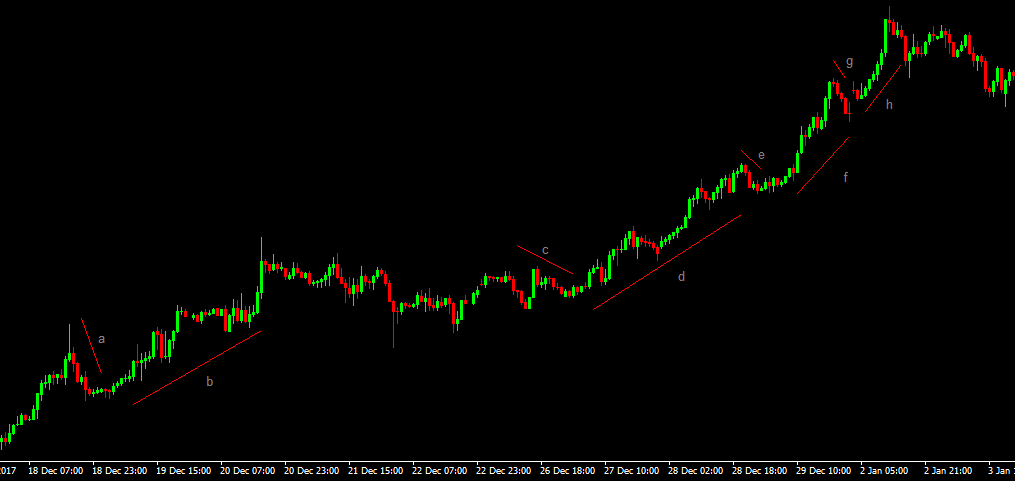An ordinary forex trader will go out and learn technical analysis, fundamental analysis, and sentiment analysis, as all the books and online courses are saying, but only a few go deeper than that and learn some subtle details of the market. That is what we are going to do today, as we aim to explain a bit what the market rhythm is and how it could help you to anticipate recurrent patterns in the market.
What does rhythm have to do with Forex?
Well, it does. The market functions exactly like a car piston. It cannot move in a single direction, without moving in the opposite. No matter how an impulsive trend it, if you zoom on the smaller time frames, you will see counter trend players. Their influence is small, but it exists. Now, this series of moves on both sides sometimes has predictable unfolding.
Let’s see an example from the chart, to explain the concept better.
Below we have the EURUSD on the 1h chart, a pair which had performed very well in 2017. What we have spotted there is a series of legs that are similar to each other.
The legs a, c, e, and g are considered consolidations on the other side of the dominant trend. On the other hand, legs b, d, f, and h, are impulsive moves in the dominant side of the market, since they cover more ground.
What we can notice there is this pattern of small consolidations followed by impulsive moves occurring four. This is what we mean by market rhythm. Is a recurring behavior of price which can lead to an anticipation of the future movements.
What you need to understand, though, is that not all the moves will be exactly the same. The length will be different, maybe some of them will cover more ground than the others. In such a liquid environment like the forex market, it is possible. What is important is to develop your focus and discipline in order to be able to spot this kind of price structure. Combined with a technical strategy it can lead to successful forex trades, for sure.
